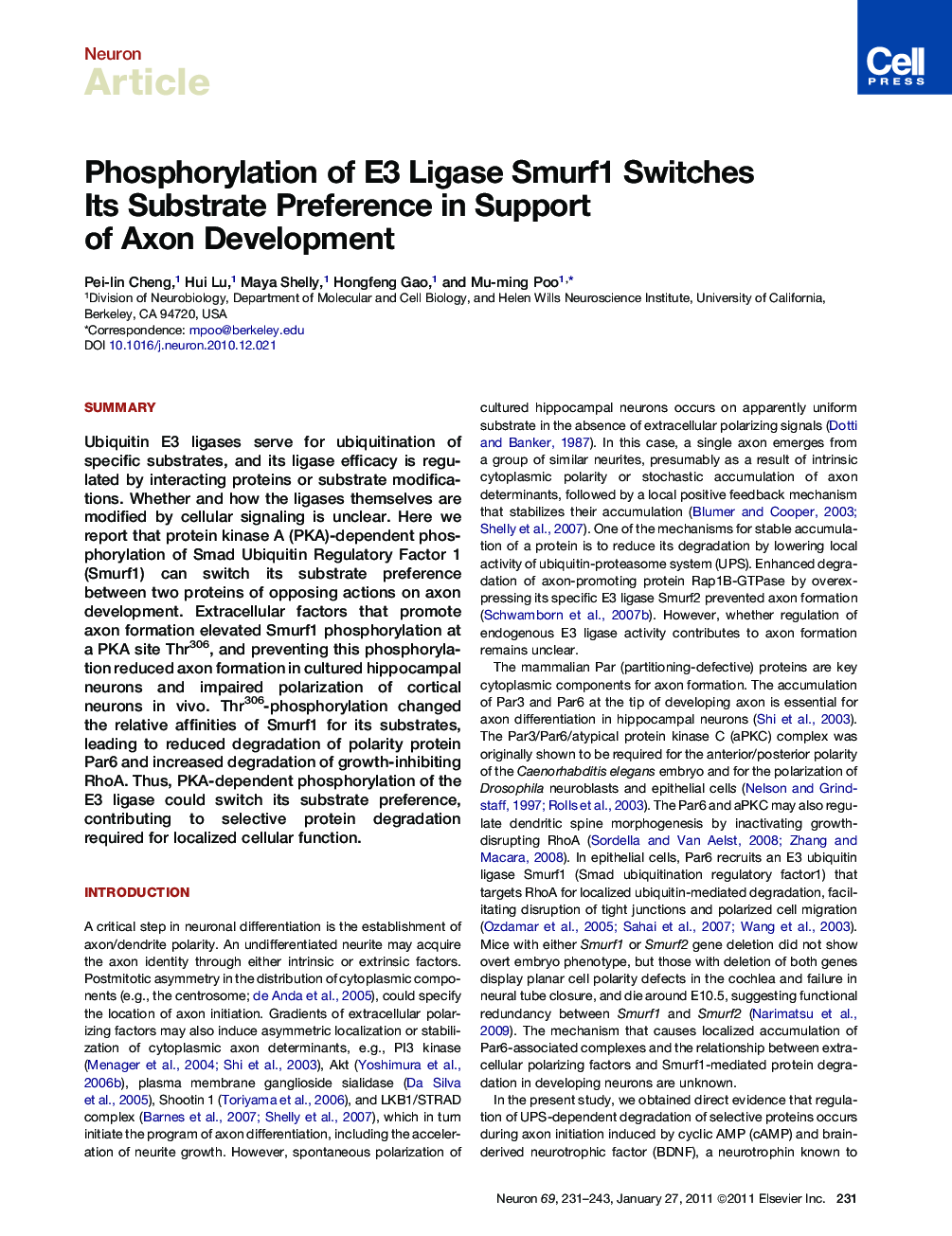| Article ID | Journal | Published Year | Pages | File Type |
|---|---|---|---|---|
| 4322223 | Neuron | 2011 | 13 Pages |
SummaryUbiquitin E3 ligases serve for ubiquitination of specific substrates, and its ligase efficacy is regulated by interacting proteins or substrate modifications. Whether and how the ligases themselves are modified by cellular signaling is unclear. Here we report that protein kinase A (PKA)-dependent phosphorylation of Smad Ubiquitin Regulatory Factor 1 (Smurf1) can switch its substrate preference between two proteins of opposing actions on axon development. Extracellular factors that promote axon formation elevated Smurf1 phosphorylation at a PKA site Thr306, and preventing this phosphorylation reduced axon formation in cultured hippocampal neurons and impaired polarization of cortical neurons in vivo. Thr306-phosphorylation changed the relative affinities of Smurf1 for its substrates, leading to reduced degradation of polarity protein Par6 and increased degradation of growth-inhibiting RhoA. Thus, PKA-dependent phosphorylation of the E3 ligase could switch its substrate preference, contributing to selective protein degradation required for localized cellular function.
► PKA-dependent phosphorylation of Smurf1 at Thr306 switches its substrate preference ► Axon-promoting factors elevate Smurf1 phosphorylation at Thr306 ► Smurf1 phosphorylation at Thr306 enhanced Par6 stabilization and RhoA degradation ► Selective protein degradation contributes to axon formation.
